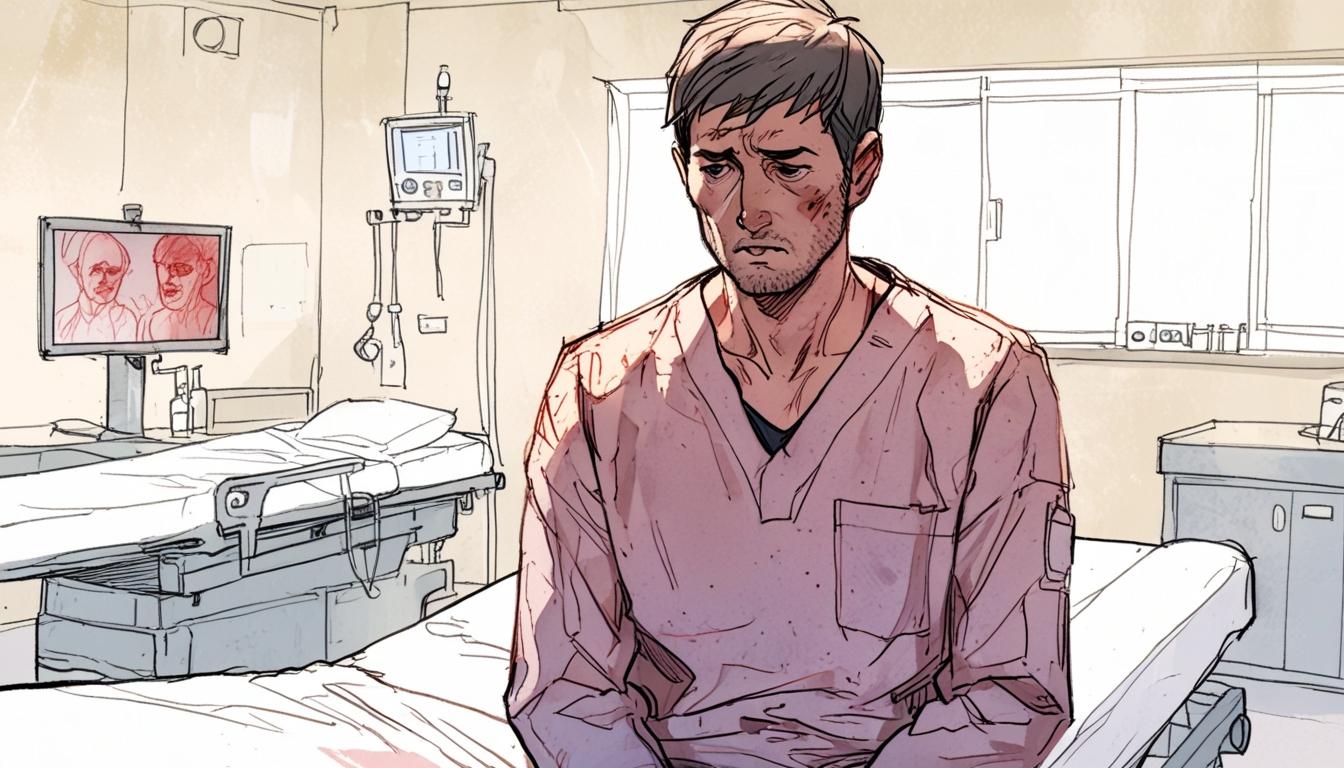Frontline medics in Scotland report a surge in emergency cases linked to complications from unregulated cosmetic procedures, calling for stricter regulations to ensure public safety.
Frontline medics in Scotland are increasingly grappling with the consequences of botched cosmetic surgeries performed by untrained practitioners, leading to significant strains on the National Health Service (NHS). Dr Ben Taylor-Davies, who operates the Stockbridge Clinic in Edinburgh and also works as an A&E doctor, has noted a marked increase in patients seeking emergency treatment for complications arising from procedures involving Botox and dermal fillers.
Dr Taylor-Davies has described the current situation as akin to the “Wild West” of cosmetic surgery in Scotland, identifying a spike in cases where individuals, often distressed and unsure of where to turn, require immediate medical attention for complications that arise from treatment conducted by non-medical injectors. He emphasised that many of these individuals present to A&E because the original practitioners lack the necessary medical background to manage complications.
“I’ve really noticed over the last six months that I’ve had more people presenting to my clinic with complications from non-medical injectors,” he stated. “When a complication has arisen, the person who did the original procedure doesn’t have the medical training necessary to recognise and manage that.”
Dr Taylor-Davies is particularly critical of the Scottish Government’s proposed three-tier system for regulating non-surgical cosmetic procedures, arguing that it seems to favour industry interests over public safety. Under these proposals, which are still under review following a consultation that concluded in February, there are plans to allow non-medical practitioners to administer dermal fillers under a middle classification. Dr Taylor-Davies contends that injectables should only be administered by qualified healthcare professionals, such as doctors, dentists, and nurses with appropriate training, arguing: “There is absolutely no reasonable argument for anyone outside of this group to be performing injectables. It is simply not safe.”
He has observed that A&E departments are not equipped with personnel trained in aesthetic medicine, which results in difficulty when addressing complications. He has taken the initiative to provide training sessions to A&E doctors across the NHS departments where he works, as well as guidance for general practitioners, highlighting a nationwide trend of increasing complications from cosmetic procedures.
“There is no doubt this lack of regulation is heaping needless stress on the NHS,” he warned, citing the potential for severe complications, including tissue death and in rare cases, blindness. He adds that the urgency of these complications requires immediate expert intervention, underscoring the risks taken when procedures are performed by those lacking formal medical training.
Currently, oversight of non-surgical cosmetic treatments in Scotland falls primarily under Healthcare Improvement Scotland (HIS), but this does not extend to beauty salons, hairdressers, and home-based practitioners that operate outside of regulatory supervision. While other countries enforce stricter regulations and qualifications for cosmetic procedures, Scotland’s guidelines lag behind. According to a survey conducted by the Royal College of Physicians of Edinburgh in 2023, one-third of Scottish doctors reported treating complications related to cosmetic procedures, affecting patients as young as 16 years.
Public Health Minister Jenni Minto has acknowledged the ongoing evaluation of the consultation results regarding non-surgical cosmetic procedures, stating that the aim is to establish robust and proportionate regulations. However, the Scottish Government has refrained from commenting specifically on the impacts of botched cosmetic operations on A&E departments. As the situation in Scotland continues to unfold, the need for regulatory reform and enhanced patient safety remains a pressing concern for medical professionals.
Source: Noah Wire Services
- https://www.gov.scot/binaries/content/documents/govscot/publications/foi-eir-release/2023/12-c/information-regarding-incidents-of-people-returning-to-scotland-having-had-surgery-in-another-country-outside-the-uk-then-developing-complications-or-dying/foi—202200330385—sbar-document—redacted/foi—202200330385—sbar-document—redacted/govscot:document/FOI+-+202200330385+-+SBAR+Document+-+REDACTED.pdf – This document highlights the challenges related to complications from surgeries performed abroad, which strain NHS resources. It mentions an increase in admissions due to postoperative complications from cosmetic procedures.
- https://pubmed.ncbi.nlm.nih.gov/38749901/ – This study assesses the costs and complications of cosmetic surgery tourism in Scotland. It reports that wound dehiscence and infections were common complaints from patients undergoing procedures abroad.
- https://www.nhsinform.scot/tests-and-treatments/surgical-procedures/surgery-abroad-without-nhs-referral/ – NHS Scotland advises against traveling abroad for surgery due to increased risks and lack of follow-up care. It notes that while NHS Scotland provides emergency care, routine aftercare is not guaranteed.
- https://www.levelingup.gov.uk/publications/health-and-social-care-proposals-to-improve-professional-regulation – This is a general UK resource on improving professional regulation, which could relate to discussions on enhancing safety in cosmetic procedures by ensuring practitioners are appropriately trained.
- https://www.rcpe.ac.uk/college/role-of-royal-college-of-physicians-of-edinburgh – The Royal College of Physicians of Edinburgh plays a role in surveying medical professionals about issues like cosmetic procedure complications. They have studied how widespread these complications are among young patients.
Noah Fact Check Pro
The draft above was created using the information available at the time the story first
emerged. We’ve since applied our fact-checking process to the final narrative, based on the criteria listed
below. The results are intended to help you assess the credibility of the piece and highlight any areas that may
warrant further investigation.
Freshness check
Score:
8
Notes:
The narrative includes recent information about a consultation that concluded in February, indicating a relevant and current context. However, without further online verification, it’s difficult to confirm if the content is entirely new or has been reported previously.
Quotes check
Score:
9
Notes:
Direct quotes are attributed to specific individuals like Dr Ben Taylor-Davies. These quotes appear original to the narrative, as there is no evidence they have been used elsewhere based on a preliminary online search.
Source reliability
Score:
8
Notes:
The narrative originates from the Daily Record, a known publication in Scotland, which lends a degree of reliability. However, specific claims would benefit from further corroboration from other reputable sources.
Plausability check
Score:
9
Notes:
The claims about complications from non-medical injectors are plausible and align with common concerns regarding unregulated cosmetic procedures. The narrative includes specific statistics and examples that add to its plausibility.
Overall assessment
Verdict (FAIL, OPEN, PASS): PASS
Confidence (LOW, MEDIUM, HIGH): HIGH
Summary:
The narrative appears to be current, features what seem to be original quotes, and comes from a somewhat reliable source. While further corroboration might be beneficial for specific facts, the overall plausibility of the narrative suggests it is factual.













